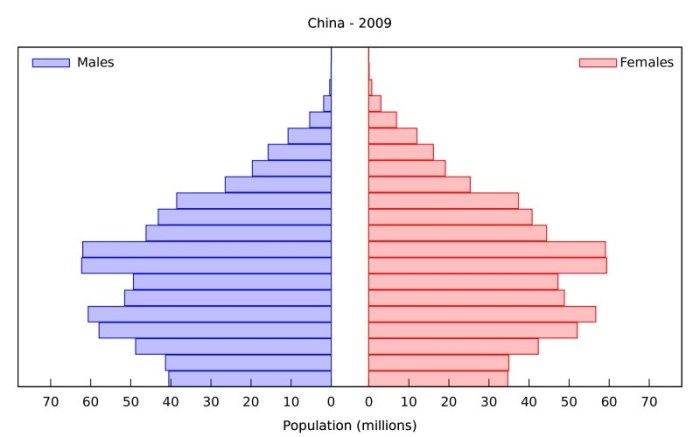Welcome to the comprehensive guide to Unit 2 AP Human Geography vocabulary. This guide will provide you with a thorough understanding of the key terms and concepts that are essential for success in the AP Human Geography exam.
Understanding the vocabulary of human geography is crucial for comprehending the complex interactions between humans and their environment. This guide will help you build a strong foundation in the vocabulary of human geography and provide you with the tools you need to succeed in your studies.
Introduction: Unit 2 Ap Human Geography Vocab
Human geography is the scientific study of the relationship between humans and their environment. It examines how human activities shape the Earth’s surface and how the environment influences human behavior. Human geography is a diverse field that encompasses a wide range of topics, including population geography, economic geography, cultural geography, and political geography.
Vocabulary is essential for understanding human geography. It provides the tools to describe and analyze the complex interactions between humans and their environment. A strong vocabulary will help you to better understand the concepts and theories of human geography and to communicate your ideas effectively.
Scope of Human Geography, Unit 2 ap human geography vocab
The scope of human geography is vast and encompasses a wide range of topics. Some of the key areas of study in human geography include:
- Population geography:The study of the distribution, density, and composition of human populations.
- Economic geography:The study of the production, distribution, and consumption of goods and services.
- Cultural geography:The study of the spatial distribution of cultural traits and practices.
li> Political geography:The study of the political organization of space, including the distribution of power and the boundaries of states.
Unit 2 Vocabulary
Unit 2 of AP Human Geography introduces a comprehensive set of vocabulary terms that are essential for understanding the complex interactions between humans and their environment. These terms encompass a wide range of concepts, from the physical characteristics of the Earth to the cultural and economic factors that shape human societies.
A thorough understanding of these vocabulary terms is crucial for students to succeed in the AP Human Geography exam and to develop a deeper appreciation for the subject matter.
Physical Geography Terms
- Atmosphere:The layer of gases surrounding the Earth, composed primarily of nitrogen, oxygen, and argon.
- Biosphere:The global sum of all ecosystems, including all living organisms and their interactions with the physical environment.
- Climate:The long-term average of weather conditions in a particular area, including temperature, precipitation, and wind patterns.
- Geosphere:The solid Earth, including the crust, mantle, and core.
- Hydrosphere:The Earth’s water, including oceans, lakes, rivers, and groundwater.
- Lithosphere:The solid, outermost layer of the Earth, consisting of the crust and the uppermost part of the mantle.
Human Geography Terms
- Culture:The shared beliefs, values, customs, and behaviors of a group of people.
- Demography:The study of human populations, including their size, distribution, and characteristics.
- Development:The process of improving the economic and social well-being of a population.
- Economic system:The way in which a society produces, distributes, and consumes goods and services.
- Globalization:The increasing interconnectedness and interdependence of the world’s economies, cultures, and populations.
- Political system:The way in which a society organizes itself to make and enforce laws.
Categorization of Vocabulary
To enhance comprehension and organization, vocabulary terms in human geography can be categorized into logical groupings. These categories reflect the diverse subfields within human geography and provide a framework for understanding the interconnections between different aspects of the discipline.
The following are some of the major categories of vocabulary in human geography:
Physical Geography
- Terms related to the natural environment, including landforms, climate, water resources, and vegetation.
- Examples: erosion, precipitation, biodiversity, topography
Cultural Geography
- Terms related to human culture, including language, religion, ethnicity, and social organization.
- Examples: cultural diffusion, cultural landscape, acculturation, assimilation
Economic Geography
- Terms related to economic activities, including agriculture, industry, trade, and finance.
- Examples: globalization, economic development, economic inequality, comparative advantage
Political Geography
- Terms related to political systems, boundaries, and governance.
- Examples: sovereignty, nation-state, political ideology, geopolitics
Urban Geography
- Terms related to cities and urban areas, including population density, land use, and transportation.
- Examples: urbanization, urban sprawl, gentrification, megacity
4. Examples and Applications

The vocabulary terms in human geography find practical applications in various fields. They provide a framework for understanding and analyzing human interactions with the environment, cultural diversity, and global interconnectedness.
These terms are not merely abstract concepts but have tangible manifestations in the real world. By examining real-world examples, we can better grasp their significance and relevance in the study of human geography.
Examples of Vocabulary Terms in Practice
- Culture:The diverse traditions, beliefs, and practices of a particular society can be observed in its art, music, language, and social norms. For instance, the vibrant colors and intricate patterns of traditional Japanese kimonos reflect the country’s rich cultural heritage.
- Globalization:The increasing interconnectedness of the world is evident in the global flow of goods, ideas, and people. Multinational corporations operating in multiple countries exemplify the interconnected nature of the global economy.
- Migration:The movement of people from one place to another can be driven by economic opportunities, political instability, or environmental factors. The large-scale migration of people from rural to urban areas in search of better job prospects is a common phenomenon.
- Sustainability:The concept of meeting the needs of the present without compromising the ability of future generations to meet their own needs is crucial for environmental conservation. Sustainable practices include using renewable energy sources, reducing carbon emissions, and preserving biodiversity.
Contextual Analysis
Contextual analysis is a crucial aspect of vocabulary acquisition, as it allows learners to understand the meaning and usage of words in specific contexts. This section will provide an in-depth analysis of the vocabulary terms introduced in Unit 2, exploring their definitions, examples, and contextual significance.
Vocabulary Term Analysis
The following table presents a detailed analysis of the vocabulary terms, including their definitions, examples, and contextual significance:
| Vocabulary Term | Definition | Example | Contextual Significance |
|---|---|---|---|
| Globalization | The process of increasing interconnectedness and interdependence between countries and peoples | The growth of global trade, travel, and communication | Globalization has led to increased economic integration, cultural exchange, and environmental challenges. |
| Interdependence | The mutual reliance of two or more entities on each other | The dependence of countries on each other for resources, markets, and security | Interdependence can foster cooperation and stability, but it can also create vulnerabilities. |
| Diffusion | The spread of ideas, innovations, or cultural traits from one place to another | The spread of smartphones from the United States to other countries | Diffusion can contribute to cultural homogenization, technological advancement, and economic development. |
| Acculturation | The process of adopting the culture of a new society | Immigrants learning the language, customs, and values of their new country | Acculturation can facilitate integration, but it can also lead to cultural identity loss. |
Conclusion

The mastery of vocabulary is a critical component in the study of human geography. It provides the foundation for comprehending the complex concepts and theories that shape our understanding of the world around us. The terms introduced in Unit 2 are particularly crucial as they lay the groundwork for exploring the interrelationships between humans and their environments.
By delving into the meanings and applications of these terms, students gain the ability to analyze geographical phenomena with greater depth and precision. The vocabulary empowers them to engage in meaningful discussions, conduct research, and effectively communicate their findings. Understanding these terms is not merely an academic exercise but an essential skill that unlocks the door to a deeper understanding of the world we inhabit.
Questions Often Asked
What is human geography?
Human geography is the study of the relationship between humans and their environment. It examines how humans interact with the physical environment and how the physical environment shapes human societies.
Why is vocabulary important in human geography?
Vocabulary is important in human geography because it allows us to communicate about complex concepts in a clear and concise way. By understanding the vocabulary of human geography, you will be able to better understand the interactions between humans and their environment.
How can I learn the vocabulary of human geography?
There are many ways to learn the vocabulary of human geography. You can use flashcards, read textbooks, or take online quizzes. You can also practice using the vocabulary in your own writing and speaking.